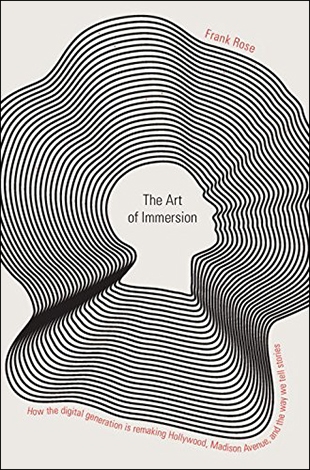As a contributing editor at Wired, Frank Rose has been covering the effects of digital technology on the entertainment landscape for more than a decade. In this edgy and thought-provoking book, he charts the innovative ways in which the Internet and its emphasis on participation instead of passivity is transforming storytelling as it is handled in movies, television shows, games, and advertising. The Internet is non-linear and immersive — meaning that it takes us on deep dives. Via this new mode of storytelling we are going to places we've never been before.
Rose presents examples of "deep media" stories in a variety of different areas:
• Real-world games involving millions of people such as the 2008 Batman film and Halo 2, a Microsoft video game.
• The television series Lost which encouraged participation and led to the fan-created wiki Lostpedia with more than 5,800 articles in seven languages.
• Out-of-the-box ad campaigns such as Burger King's "Subservient Chicken" and the ground-breaking ad campaign for Old Spice.
Rose also talks to leaders in this emerging field of "transmedia" including James Cameron, director of the trend-setting immersive movie Avatar; Damon Lindelof, the co-creator of Lost; and Will Wright, the creative force behind SimCity, The Sims, and other games.
Today's transmedia lover should be grateful for the many pioneers who expanded the style and reach of story — fiction writers Charles Dickens and Daniel Defoe; the Star Wars franchise; the hyperlink cinema of Pulp Fiction; and fans Tweeting as characters of the Mad Men TV series.
One thing is perfectly clear: the walls between storyteller and audience; medium and content; genuine and fake have been pulled down. That is why Rose's assessments of empathy and authenticity have a real spiritual clout to them (see the excerpt). The Art of Immersion is a fascinating read and highly recommended!
